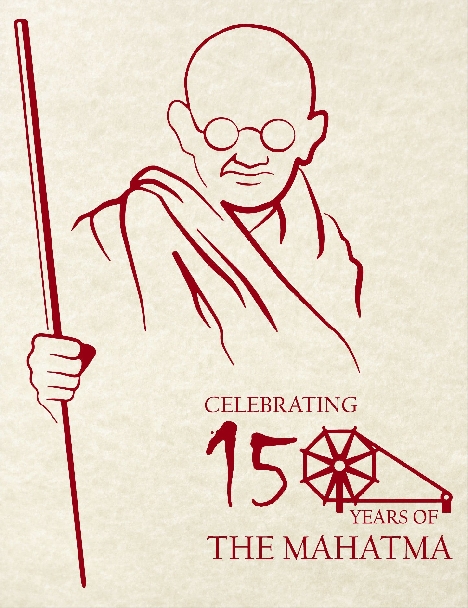A talk by Professor Janaki Bakhle, Associate Professor of History at UC Berkeley, in which she will place Gandhi in conversation with Savarkar against the backdrop of a failed Khilafat movement during the turbulent decade of the 1920s to suggest that despite Gandhis peculiar views, he not only channeled Lockes theory of toleration, but anticipated some of the core problems that would continue to bedevil political democracies not just in India but across the globe.
Abstract
In December 1920, Gandhi addressed a womens meeting in Patna, where he begged Hindu and Muslim women not to consider themselves each others enemies. But he clarified what he meant. As it was reported in The Searchlight
he did not mean that the two should be one, that Hindus should take to reading and believing in the Koran, giving up the study of and belief in the Vedas and Shastras; nor that the Mussalmans should discard the Koran and begin studying and believing in the HIndu Shastras and Vedas. Every one of them should remain firm to their religion. As there could be no marriage between a brother and a sister but all the same they could love each other, so Hindus and Mussalmans also should have love and respect for each other. This was perhaps Gandhis clearest statement on toleration. But he also had clear directions for how this amity could be brought about.
In January 1921, a year before his imprisonment, he gave a speech in Vadtal, a small village in the Kheda district of Gujarat. It was a place of pilgrimage for Hindus of the Swaminarayan sect, and Gandhi spoke about matters close to his heart: cow protection, Swaraj, non-cooperation and most importantly, the restoration of the Khilafat. The British government, he noted, had revealed itself to be a Ravana by attacking Islam and betraying the Muslims. Gandhi claimed he had lost faith in this Ravana government because of its calculated betrayal of Islam. He answered a question he assumed his audience would have for him, about why he was spending so much time talking about friendship with Muslims, particularly as it related to the question of cow slaughter. They too kill cows, he accepted but I shall be able to explain to them that an orthodox and devoted Hindu [he was referring to himself] fought along with them with the faith that, if he fell fighting for the protection of their religion, Khuda will call upon them to protect the cow. And finally, You cannot save the cow by killing Muslims or Englishmen; you can save her only by offering your own dear neck. As soon as the Muslims realize that for their sake the Hindus are ready to lay down their lives, they will desist from cow slaughter the Koran does not insist that Muslims must eat beef. It has not prohibited beef, that is all I am associating with the Muslims only with this faith and I tell all the sadhus that, if they sacrifice their all for the sake of Khilafat, they will have done a great thing for the protection of Hinduism. Today the duty of every Hindu is to save Islam from danger. Gandhi, in short, stipulated a moral and political equivalence between what he held to be two parallel religious principles: cow slaughter and Khilafat. In doing so, however, he was clear that the majority group, the Hindus, had to take on the Muslims burden as their own in order to maintain India as their own home.
This was precisely the rhetoric, philosophy, political strategy and perspective that would send Gandhis chief antagonist, V.D. Savarkar into paroxysms of rage upon his return from the Andamans. By 1919 Gandhi had twinned the righting of the Punjab wrong with the righting of the Khilafat wrong as a joint platform for the INC to take on. One could not, as a Hindu, demand the tolerance by Muslims of what was a (albeit bogus) central religious tenet without granting that Khilafat was an equivalently central religious tenet as well. Savarkar would too produce a similar equivalence, but whereas Gandhi did a characteristically deep structural dive into Hindu consciousness, Savarkar produced his equation with resentment and rage. If it was Gandhis genius in recognizing the affective hail of Khilafat for Muslims, similar to his own conception of Ramrajya, for Savarkar, the Khilafat movement had succeeded only in persuading him that Muslims were not even human.
Speaker Bio
Janaki Bakhle is Associate Professor of History at UC Berkeley. She specializes in Modern South Asian history. Her areas of specialization include Indian political history, Indian feminist history, nationalism, gender and culture. Her first book, Two Men and Music: Nationalism, Colonialism and the Making of an Indian Classical Tradition was published by Oxford University Press, 2005. She has published in CSSH, and is currently engaged in her second book project about Vinayak Damodar Savarkar, known as the chief ideologue of Hindu fundamentalism, and is writing about sedition, colonial surveillance, and the emergence of Hindu fundamentalism in late nineteenth century India.
Read more about Prof. Bakhle at her faculty webpage HERE
-------------------------
Event made possible with the support of the Sarah Kailath Chair of India Studies
Like us on FACEBOOK
Follow us on TWITTER
For DIRECTIONS to the Institute please enter "Institute for South Asia Studies" in your google maps or click this GOOGLE MAPS LINK.
PARKING INFORMATION
Please note that parking is not always easily available in Berkeley. Take public transportation if possible or arrive early to secure your spot.
The event is FREE and OPEN to the public.

